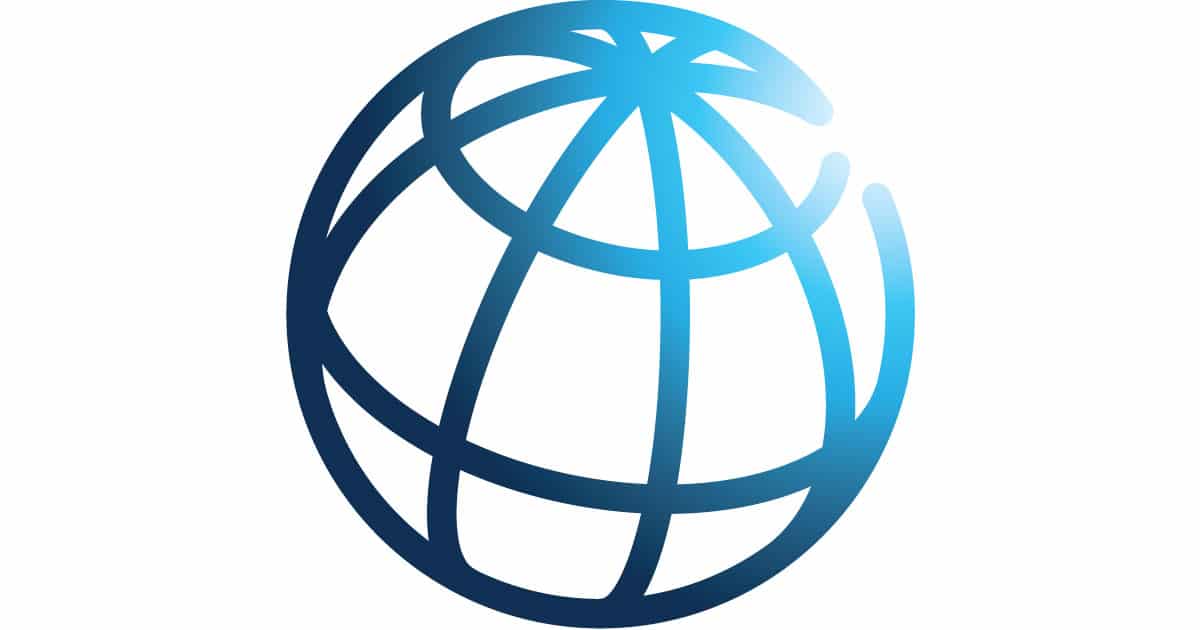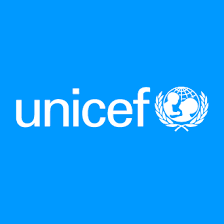
Consultant For The Evaluation of Elimu Sawa kwa Wote
Job Role Insights
-
Date posted
2025-08-29
-
Closing date
2025-09-13
-
Hiring location
Arusha
-
Career level
Senior
-
Experience
3 - 5 Years
-
Quantity
1 person
-
Gender
both
-
Job ID
122402
Job Description
| Country: | Tanzania |
| Project: | 522006 (Elimu Sawa kwa Wote) |
| Commissioned by: | Pestalozzi Children’s Foundation |
Table of Contents
1......... Background information and context......................................... 2
2......... Purpose of the evaluation.......................................................... 2
3......... Scope and focus of the evaluation............................................. 2
3.1...... Evaluation questions.................................................................... 3
3.2...... Evaluation methods...................................................................... 5
4......... Schedule and Deliverables......................................................... 5
4.1...... Structure and length of the final report........................................... 6
5......... Role and responsibilities........................................................... 6
6......... Competency profile of the evaluator(s)...................................... 6
8......... Guiding principles and values................................................... 7
List of Abbreviations
| 3Rs | Reading, Writing, and Arithmetic’s |
| CASEE | Community Aid and Social Education Empowerment |
| FGDs | Focus Group Discussions |
| ODK | Open Data Kit |
| OECD-DAC | Organisation for Economic Co-operation and Development - Development Assistance Committee |
| PCF | Pestalozzi Children’s Foundation |
| SPSS | Statistical Package for the Social Sciences. |
| ToR | Terms of Reference |
Background information and context
The Pestalozzi Children's Foundation (PCF) is a Swiss non-profit organisation working worldwide. Our vision is to create a world where children can learn and laugh in peace and freedom. PCF seeks to enhance inclusive and equitable quality education to promote sustainable development and living peacefully together. The PCF Tanzania Country Programme promotes inclusive and equitable quality education in the regions of Songwe and Arusha.
PCF and CASEE, a local non-governmental organisation, entered into a Cooperation Agreement to implement the project “Elimu Sawa kwa Wote” to improve the quality of Education in Karatu District in 2020. The collaboration has continued over two phases:
Phase one was implemented from July 2020 to June 2023 with the aim of improving education in 15 schools.
Phase two of the project from 2023 to 2026, focuses on improving children’s competencies in foundational literacy and numeracy (the 3Rs), key subjects (English, Mathematics, Science), gender equality, and child rights in 30 primary schools of Karatu District. The project targets 264 teachers (147F; 117M), 251 school committee members (118F;133M), 15,917 students (7,967F;7,950M), and 2,500 parents/community members (1,650F; 1,150M). The project does this by creating safer school environments, enhancing teacher capabilities, and encouraging active participation from parents and communities in the education of both girls and boys
Project schools were selected based on multiple challenges such as:
- Shortages of infrastructure including classrooms, desks, teachers’ housing, and sanitation facilities (toilets) and
- Specific educational barriers, such as low community valuation of schooling and poor access among marginalised ethnic groups like the Datoga and Hadzabe minority ethics groups, inadequate in-service capacity building programme for teachers; long distances to schools; poor teacher-pupils ratio; drop out of children from schools, especially boys; and climate change effects as a result of land degradation, deforestation and mismanagement of natural resources leading to prolonged instances of drought or floods.
The purpose of the end of Phase II evaluation (2023–2026) is to build a knowledge base for learning and improvement in the next phase. The target audience of the evaluation is PCF and CASEE Specifically, the evaluation aims to:
- To evaluate the performance of the project, including both intended and unintended effects that may already be evident using the OECD-DAC evaluation criteria (relevance, coherence, effectiveness, efficiency, impact and sustainability)[1].
- To derive lessons learned and provide recommendations to guide in designing the third and final phase, including recommendations on how the third phase can promote sustainability after the project ends.
Scope and focus of the evaluation
The evaluation aims to assess the relevance, effectiveness, efficiency, coherence, sustainability and management of the second phase (July 2023 to June 2026) of the Elimu Sawa kwa Wote project in Karatu District, Arusha Region.
The evaluation will target girls’ and boys' students, female and male teachers trained in PTM, 3Rs, challenging topics, gender and child rights, as well as education officials at the district and ward levels, school management, and community members involved in the project's contribution. The evaluation will assess project implementation and its components as part of the Tanzania country programme and in line with the contextual factors such as the national education and training policy, education sector development plan (ESDP) and local education strategies.
| Key Evaluation Questions | OECD Criteria | Priority of criterion |
| To what extent did the project address the needs of the students, teachers, and communities, considering the different needs of girls and boys in Karatu District? | Relevance | Low |
| Is the intervention doing the right thing considering the other actors and latest developments in the education sector in Tanzania (e.g. does it reinforce ongoing efforts within the education system)? | Coherence | Low |
| To what extent did the project achieve its intended outcome on improving the wellbeing of girls and boys and education continuity? To what extent were key stakeholders (e.g. target audience, local authorities, and partners) actively engaged in the implementation and decision-making processes of the project? | Effectiveness | High |
| How well are financial, human and material resources being used? | Efficiency | High |
| What difference does the intervention make? | Impact | Medium |
| Will the benefits last, considering measures that have been taken to ensure the sustainability of results after the project ends, the extent of local ownership and capacity built, etc)? | Sustainability | High |
| Are there other important findings and lessons regarding cross-cutting issues (gender equality and inclusion, safeguarding) or risk management? | Mainstreaming and quality issues | Medium |
A specific and detailed assessment design should be presented to CASEE and PCF by the evaluation team based on the following mixed methods of information gathering (the list below is for reference only):
- Interviews with key informants: i.e. PCF staff, CASEE staff, District Education Officers, Ward Education Officers, Social Welfare Officers, Quality Assurers, Academic Officers, Head Teachers, and other community leaders
- Focus group discussions with the project’s participants (e.g. teachers, parents, children (boys and girls of different ages, school clubs’ members, school committee members, and child protection committee members)
- Desk review of project/programme documentation (project planning documents (e.g. log frame), monitoring system, monitoring report, project/programme report), including financial records (I). Participant observation including classroom observation to gain qualitative insight into student engagement and behaviours. Classroom observation will focus on participation, collaboration, confidence.
- (II)Transit walks: Conducting a transit walk with students to identify safe and unsafe areas around the school environment
- Survey: Questionnaire and questions administered to key stakeholders
All evaluations conducted for PCF must use a mix of information gathering methods, eliminating information bias and using relevant samples. Whenever possible, additional external sources should be included to validate findings and increase data robustness. The proposal must describe and justify chosen sampling methods.
| No | Activity | Deadline/Date |
| 1. | Advertisement for project evaluator | 1st September 2025 |
| 2. | Submission of CVs, financial and technical proposals by applicants. | 12th September 2025 |
| 3. | Shortlisting of evaluators (3 evaluators) /and selection of the consultant | 15th-17th September 2025 |
| 4. | Interview of shortlisted candidates | 19th September 2025 |
| 6. | Submission of the inception report, including tools, by the selected consultant | 6th October 2025 |
| 7. | The signing of the evaluation contract | 10th October 2025 |
| 8. | Engagement meeting with a consultant for TOR clarification, tools review, and sampling of study areas/schools | 13th -27th October 2025 |
| 9. | Data collection and analysis | 10th -21st November 2025 |
| 10. | Submission of the draft report | 1st December 2025 |
| 11. | Final Evaluation Report | 15th December 2025 |
| 12. | Dissemination of the final evaluation report to beneficiaries during the planning workshop | 1st week of March 2026 |
Structure and length of the final report
The final evaluation report should be submitted in English. It should not be longer than 30 pages (excluding annexes and executive summary). The final evaluation should contain an executive summary of no more than 5 pages that includes a brief description of the project, its context and current situation, the purpose of the evaluation, its methodology and its main findings, conclusions and recommendations.
The structure of the report should follow the structure of the executive summary. Three signed copies of the final version of the report, along with a digital version, have to be submitted to PCF.
- PCF: In collaboration with CASEE will oversee the entire project evaluation process through to its final stage, Including finalise the TORs, make sure the evaluation happens on time/with agreed resources and finalizing the final report.
- CASEE: the organizer of evaluation in the field develops ToR in collaboration with PCF, to ensure the evaluation team has all the required information, facilitate the visits to schools and and other stakeholders including district and ward officials, community and parents as well as preparation and organizing dissemination meeting during planning workshop.
- Evaluator/evaluation team: Preparation of evaluation proposal (including inception report and budget, elaboration of data collection tools) conducting the evaluation, drafting evaluation report, and finalization of the report based on received comments, presentation of the report to CASEE and PCF as well as dissemination of the final report to stakeholders during planning workshop.
Competency profile of the evaluator(s)
- To ensure high-quality delivery of the evaluation, the lead consultant must meet the following minimum qualifications and competencies:
- The lead consultant should have a minimum of a Master’s degree or higher in Education, Development Studies, or related disciplines
- At least 5–7 years of relevant work experience, specifically in evaluating education projects or projects promoting the rights of the child (especially in basic or primary education), with a gender equality and social inclusion lens.
- Proven experience of using both qualitative and quantitative evaluation methods (mixed methods) in a gender sensitive way; designing and conducting baseline, midline, or endline evaluations; Monitoring and Evaluation (M&E) frameworks (e.g., logical frameworks,); and using recommended data collection tools and software (e.g., Kobo Toolbox, ODK, SPSS, Stata)
- Understanding of Tanzanian national education policies and rural education challenges
- Cultural sensitivity and ability to engage with local communities and stakeholders, including the ability to convey technical information to non-expert audiences in an inclusive, culturally sensitive, and gender-responsive manner.
- Excellent verbal and written communication skills in both English and Kiswahili.
- Familiarity with Tanzanian local government structures, environmental regulations, and working with development partners or donor-funded projects is a plus.
A detailed budget should be included in the proposal and specify how many person-days are given for studying the documentation, execution (field visits), reporting etc. Other expenses to be calculated include (if relevant): translation, session with partners, transportation etc.
The evaluation team should adhere to the United Nations evaluation norms and standards and ethical guidelines for evaluation[2]. The individual consultants/team or institution that will work on this project must demonstrate personal and professional integrity during the whole process of the evaluation. He/she/the team must respect the right of institutions and individuals to provide information in confidence and ensure that sensitive data cannot be traced to its source. Further, the team must respect the ethics of research while working with children, including using age-appropriate consent forms, age-appropriate data collection, and the principle of do no harm.
Furthermore, the team and its members must take care that those involved in the evaluation have an opportunity to examine the statements attributed to them. The evaluation process and consultants must be sensitive to the beliefs, manners, and customs of the social and cultural environment in which they will work. Especially, the consultants must be sensitive to and address issues of protection, discrimination and gender inequality. Furthermore, the consultants are not expected to assess the personal performance of individuals and must balance an assessment of management functions with due consideration of this principle. Finally, if the consultants or team uncover evidence of wrongdoing, such cases must be reported discreetly to the appropriate investigative body.
Interested candidates can submit both technical and financial proposals to [email protected] with a copy to [email protected] and [email protected] by 12th September 2025.
If you do not hear from us within two weeks after the application deadline, please consider your application unsuccessful
[1] Glossary of Key Terms in Evaluation and Results Based Management, http://www.oecd.org/dac/evaluation/2754804.pdf and OECD (2021), Applying Evaluation Criteria Thoughtfully, OECD Publishing, Paris, https://doi.org/10.1787/543e84ed-en.
[2] http://www.unevaluation.org/document/detail/1914, consulted on 23.10.2016
Interested in this job?
This job has expired
Share this opportunity
Help others find their dream job



